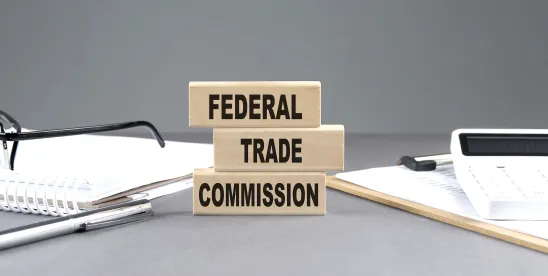On September 23, 2023, the FTC issued a policy statement advising it would be putting market participants on notice that it intends to scrutinize improper Orange Book listings to determine whether such actions constitute unfair methods of competition in violation of the Sherman Act.1 On November 7, 2023, FTC made good on its promise by issuing Warning Letters to ten different manufacturers of seventeen different brand-name asthma inhalers, epinephrine autoinjectors and other drug products (which includes a delivery device as part of the product), questioning whether listing certain patents focused on the device aspects of the drug product was appropriate.2 On April 30, 2024, FTC repeated this action with a second wave of Warning Letters sent to ten different manufacturers, covering twenty products for diabetes, weight loss, asthma and COPD drugs.3 For each of the thirty-seven drug products, FTC commenced so-called Patent Listing Dispute proceedings, under the auspices of FDA, as opposed to Federal Court litigation.
Historically, the FDA has treated the listing of patents as an administrative matter and does not challenge the information submitted by the NDA holder. The Patent Listing Dispute process provides the NDA holder the opportunity to provide a response where it can confirm the correctness of the listing of the questioned patent.4 The regulation provides that, “[u]nless the NDA holder withdraws or amends its patent information in response to the patent listing dispute, the Agency will not change the patent information in the Orange Book.”5
On July 12, 2024, the FDA updated the “Patent Listing Disputes” page on its website.6 While we are not privy to the actual submissions made by the NDA holders, the update does shed some light on the impact of the FTC initiative, which appears to be minimal.
For the first wave of Warning Letters, six of the seventeen products did change the Orange Book listings while eleven remained unchanged. This information was made public in early May 2024, notably prior to when the NDA responses were due for the Warning Letters issued on April 30, 2024. For the twenty drugs encompassed by the second wave letters, none changed their Orange Book listings.
Once the NDA holders were armed with both the regulatory language as well as the results from the first wave of Warning Letters, it appears that most of them have concluded that no change was required in their patent listings. Of course, since the FTC first started publicly taking on Orange Book patent listings, we have seen at least one instance where generic pharmaceutical companies have obtained an order7 from a U.S. District Court granting relief of a delisting counterclaim and ordering that certain patents should be removed from the Orange Book, although that decision has now been stayed pending Federal Circuit review.8 It remains to be seen whether we will see similar counterclaims or other actions brought for patents on FTC’s list that remain in the Orange Book.
It is clear, however, that the FTC’s attempt to use the Patent Dispute Process to spur the FDA to review the legitimacy of Orange Book listings for device patents does not appear to have changed the ministerial approach taken by the FDA. FDA will continue to rely on the information provided by NDA holders with little to no substantive review.
[4] 21 CFR §314.53(f)
[5] 21 CFR §314.53(f)(i)(A)
[6] https://www.fda.gov/media/105080/download?attachment
[7] Teva Branded Pharmaceutical Products R&D, Inc. v. Amneal Pharmaceuticals of New York, LLC, No. 23-20964 (SRC) (D.N.J. June 10, 2024).
[8] Teva Branded Pharmaceutical Products R&D, Inc. v. Amneal Pharmaceuticals of New York, LLC, No. 2024-1936 (Fed. Cir. July 10, 2024).





 />i
/>i

